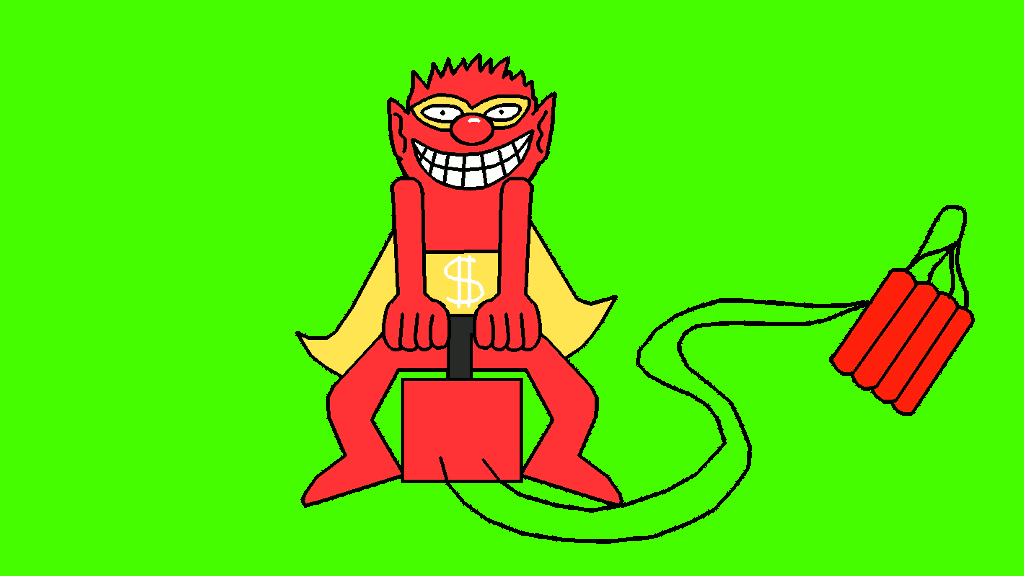The only reason he let me drive to Chicago get his "poison," as he called it, is because he had a bunch of business to conduct during the drive. Seventy-eight, transplanted liver, two types of cancer lurking in his body, on chemo, and doing business on the way to Chicago.
We arrived 30 minutes early to the series of appointments. Fairly quickly the phlebotomist yelled his name. All of the phlebotomists yell. Perhaps many of the patients are hard of hearing. Once he had his blood drawn, he officially transformed from a respected businessman to just another cancer patient. And then we waited. My dad was texting and emailing furiously. I was bored. And then something or someone caught my eye. There was a man, hanging from the 21st floor, caulking the building. In the winter, Chicago is unbearably cold. Hospitals design their buildings with beautiful windows, but if the building is not insulated properly, the heating costs could be enormous, or worse, the heat just wouldn't protect against the cold winds more than 200 feet up.
"What are you looking at?" my dad grumbled.
"Check out that guy, dad" I said.
He didn't look up from his tablet. He was reading a contract.
Suddenly, I had the urge to photograph him. Not my dad, but the caulker. I'm not a great photographer. I used to publish photos to illustrate the police blotter when I was a cub journalist: house fires, car crashes, even a hit and run. As a working journalist, I would never ask permission to photograph someone.
I knocked on the window, softly enough to get his attention, but not loud enough to cause, God forbid, an accident.
I mouthed a few times before he understood, "May I photograph you?"
He mouthed back, "Sure."
I took dozens of photographs of him from different angles. The cancer patients and their caregivers or drivers were either pretending not to look at me or were also delighted by the intricate work of the caulker.
"Glad those two journalism degrees are getting some use," my dad teased. "Make sure you wash your hands after touching the floor."
I tapped on the window one last time and mouthed "thank you." As my dad commanded, I washed my
hands.
The nurse finally called his name, a bit softer this time. The appointment was uneventful at first. The doctor and I played Jewish geography until the big reveal.
I came to know that my dad was taking 22 pills a day.
22.
It was thought that these pills were giving him more time to be a husband to my mom, a dad to us, a Zadie to his grandchildren, serve on boards, make money, give advice to a funeral director, but he was also suffering from a lot of side effects that only those closest to him, especially my mom, knew about. How many people with chronic illnesses suffer silently? Does the smartest person in the room go home at night to neuropathy, fatigue, and the kind of stomach problems that causes you to drop 65 pounds in a year.
We walked back to the chemo area. It's a huge expanse where about 50 people were receiving chemotherapy. I wondered how much money Northwestern made in a day off of this production.
"I've said this already," he said firmly. "I'm not that sick. I don't want a room. A curtain with a chair is fine. Give the room to the sick people."
The nurse found him a non-room room and the chemotherapy began. Jimmy was a traveling nurse from West Virginia. He had been all around the US, but had only been in Chicago for a few weeks. He liked it so far. He was staying at a motel pretty close to my old condo in Lakeview, but was looking for a cheap rental. After Jimmy hung the IV bags, Dad asked me if we should call Eric to help Jimmy find an apartment to rent.
"Dad, Eric doesn't really do rentals so much. He's busy selling houses. Besides, every time you come here, are you going to ask Eric to find a rental for a nurse?"
He didn't hear my pithy response. Dad was asleep. Although he hadn't wanted a bed because he wasn't that sick, he looked pretty ill to me.
...
After the chemo treatment, Dad wanted to drive back to South Bend. I said, "no way." He had just had six hours of chemo. In no world did driving 100 miles after that much chemotherapy sound like a great idea.
"Fine," he lied. “ But watch how you're turning that corner. You're driving too fast for a parking garage."
I knew he was angry with me.
...








